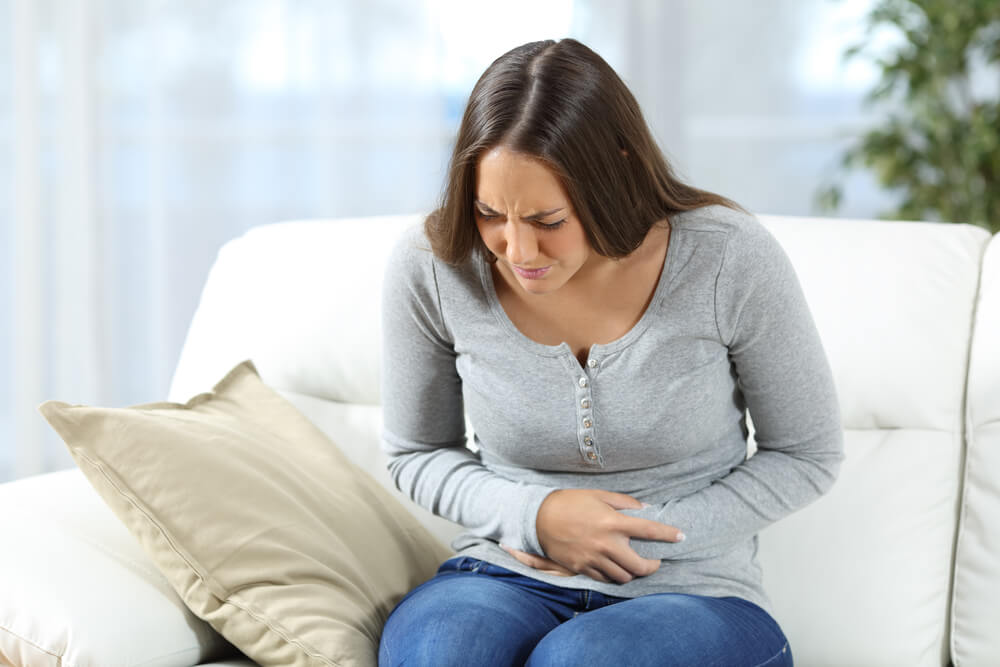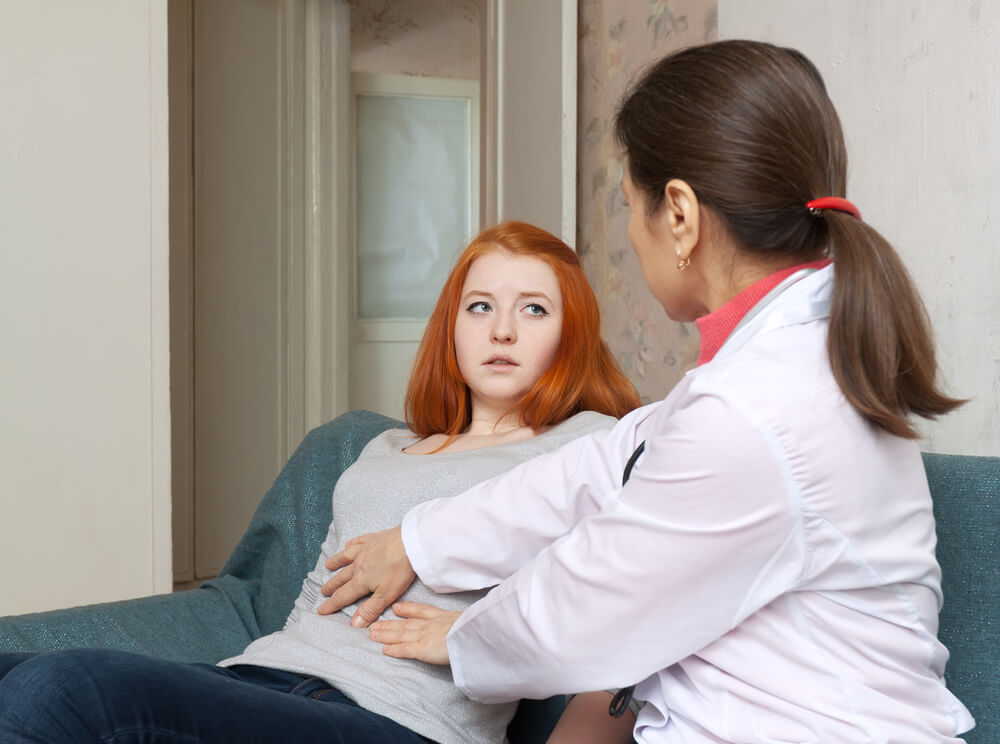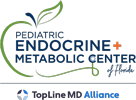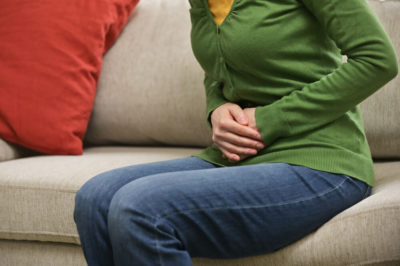PCOS or polycystic ovary syndrome can affect adolescent girls who have started menstruating. PCOS in teens can cause irregular, heavy, and painful periods, or make them stop completely. Other common signs of PCOS in teenagers include acne and hair growth. However, it’s not often that doctors diagnose PCOS in teens. This is because hormones are already fluctuating during this period, and symptoms such as acne and irregular periods can be attributed to this and deemed a normal part of adolescence.
Potential Causes of PCOS in Teens
Endocrine issues and disorders occur when hormones are overly high or low, and PCOS is one of the most common such disorders. Even though it’s not perfectly clear what causes PCOS in the first place, it’s connected to a hormonal imbalance in the body. Genetics can also be a significant risk factor.
The earliest age to diagnose PCOS depends on the patient. Essentially, girls who haven’t got their period yet simply cannot get PCOS. However, once they start menstruating, signs of PCOS in a teenager can show up rather quickly in some cases. In that respect, the earliest age to diagnose PCOS is individual and can be the age of the girl’s first period.
This is where the matter of the so-called precocious puberty can be rather important. When we talk about the earliest age to diagnose PCOS, we always think about adolescents. However, in some cases, girls can get their first period before they even turn eight years old, hence the name precocious puberty. Their risk of developing PCOS during adolescence is considerably higher compared to girls getting their first period during their teenage years.
Symptoms and Signs of PCOS in Teenager

The most common signs and symptoms of PCOS in teens include the following:
- Irregular periods; the complete absence of periods or periods that are too close or too far apart
- Hirsutism, i.e., excess hair growth that affects the entire body, including the face
- Clogged pores and acne on both the face and body
- Weight gain and obesity, as well as difficulty to lose weight
- Acanthosis nigricans, which is characterized by dark skin patches, often at the back of the neck
- Alopecia, i.e., hair thinning on the head
- Health issues such as high cholesterol and blood pressure, or diabetes mellitus
It’s easy to ignore the need for a PCOS test when the mentioned symptoms in teenage girls are concerned. Many of these are generally common for girls in puberty, even when they don’t have PCOS.
However, if you suspect that your teen daughter is actually suffering from PCOS, make sure to get her to the pediatric PCOS specialist in Florida. With the right treatment and approach, going through puberty with PCOS won’t have to be any more challenging than it already is by default.
Diagnosis and PCOS Test
If there’s a chance that a teen girl has PCOS, she will have to go to the gynecologist and endocrinologist who can do the adequate PCOS test and set the right diagnosis. This entire process may also involve answering questions about general health and menstrual cycle, physical exam, pelvic ultrasound, as well as blood tests.
Suppose the teen is experiencing PCOS symptoms, but the tests fail to confirm it definitely. Girls affected by PCOS are more likely to have enlarged ovaries with small cysts, and the ultrasound can show that clearly. In that case, it’s essential to perform a full hormonal workup in order to pinpoint the condition that’s been causing issues in the first place.
The Treatment for PCOS

It’s true that PCOS has no definitive cure, but the condition can be managed properly. For instance, taking birth control for PCOS can manage a handful of related symptoms. The most important thing is to get diagnosed with PCOS to administer the appropriate treatment. This can minimize the risk of other more serious health issues that could affect the teen in the future, such as:
- Obesity and diabetes
- High blood pressure and heart disease
- Uterine bleeding and infertility
- Excessive acne and hair growth
- Cancer
Treatment with meds and lifestyle changes are the two key treatment options when PCOS is concerned. Taking birth control pills for PCOS is the common medicine path, especially when the teen needs help managing acne, excess hair growth, and irregular periods. However, not all birth control pills will be effective for every affected girl, and they usually need to be taken for up to six months in order to show whether they work or not.
It’s also possible for the doctor to prescribe another medicine called metformin, which is a treatment for diabetes that lowers insulin but can also regulate the menstrual cycle thanks to that.
Antiandrogens will be necessary if the main cause for PCOS is the excess of androgen hormone, and they can also effectively manage skin and hair issues.
Aside from medication, lifestyle changes will be in order as well. The doctor can come up with a balanced diet and exercise plan that can support healthy weight loss, improve insulin sensitivity, and prevent diabetes progression in general. In case the teen is also dealing with weight gain, losing some weight can actually minimize the severity of PCOS symptoms as well as significantly reduce the risk of related diseases such as high blood pressure and diabetes.
It’s crucial to discuss everything that the teen girl is going through openly with the doctor. An environment of trust is more than necessary, not just when it comes to the doctor but also the way parents react to what the teen is going through so that there’s no miscommunication or embarrassment involved that could impede the proper treatment process. What’s more, transparency, in this case, is a must if the doctor is to pinpoint the ideal treatment for the teen, be that birth control for PCOS or something else, and your daughter to understand how to manage this condition better.
It’s possible for PCOS to affect teenagers (and adult women alike) in a more emotional and mental manner, which can cause serious mood swings and even depression. If you notice that your daughter is exhibiting some of the unusual behavior that can be linked to depression, make sure to talk to her and provide her with the option to talk to a mental health professional. You can also take it upon yourself to explore support groups with other teens that could help your own daughter cope better.
If there’s even a small suspicion on your end that there’s something wrong with your teen daughter’s period and accompanying symptoms, don’t hesitate to schedule an appointment with a doctor. Even if it ends up being nothing and just the common part of puberty, both of you will be able to get some peace of mind. But it also might turn out to be PCOS, which should be treated as soon as possible in order to prevent more serious complications. The Pediatric Endocrine and Metabolic Center of Florida can help your daughter and you as her parent so that this condition becomes just one tiny part of her life that’s easy to manage and not a nightmare to live in.


